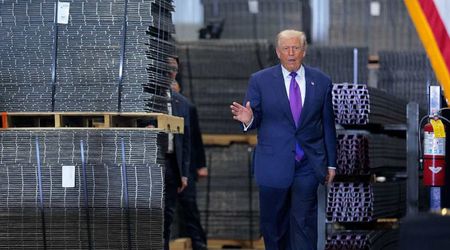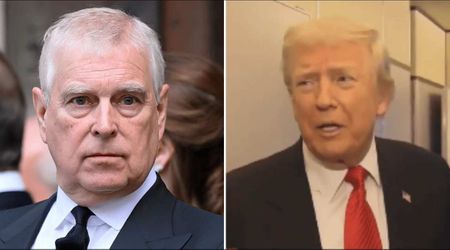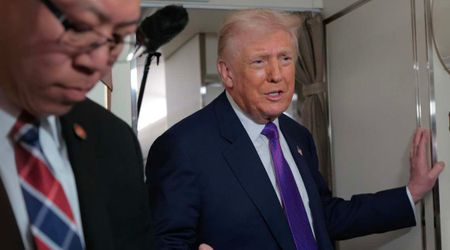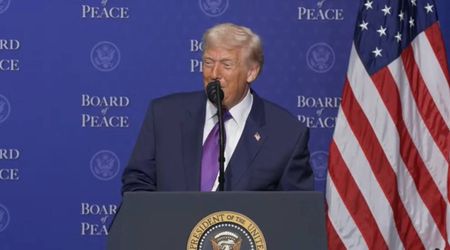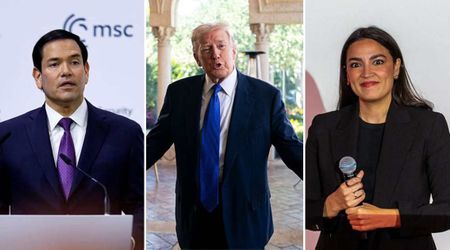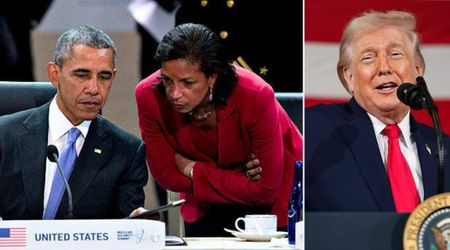8 experts break down what could happen if Trump joins Israel in bombing Iran

WASHINGTON, DC: As tensions soar between Israel and Iran, with missile and drone strikes exchanged in a fierce showdown, President Donald Trump is weighing in on the possibility of joining the fight over Iran’s nuclear program, Politico reported.
While Trump hasn’t ruled out supplying Israel with the bombs needed to target Iran’s underground nuclear facilities, eight leading experts, from former ambassadors to foreign policy strategists, offer their insights on what could happen if the United States launches an attack on Iran.
1. Ryan Crocker
Former American ambassador Ryan Crocker, a respected authority in diplomacy and security at RAND, outlined the key choices Iran would face if the US launches an attack.
According to Crocker, Iran could either "return to negotiations prepared to concede retaining any enrichment capability," or it could retaliate. He explained that retaliation might involve "blocking the straits of Hormuz, attacks on the energy infrastructure of the Arab Gulf or attacks on US military and diplomatic targets in the region, either directly or via affiliated militias."
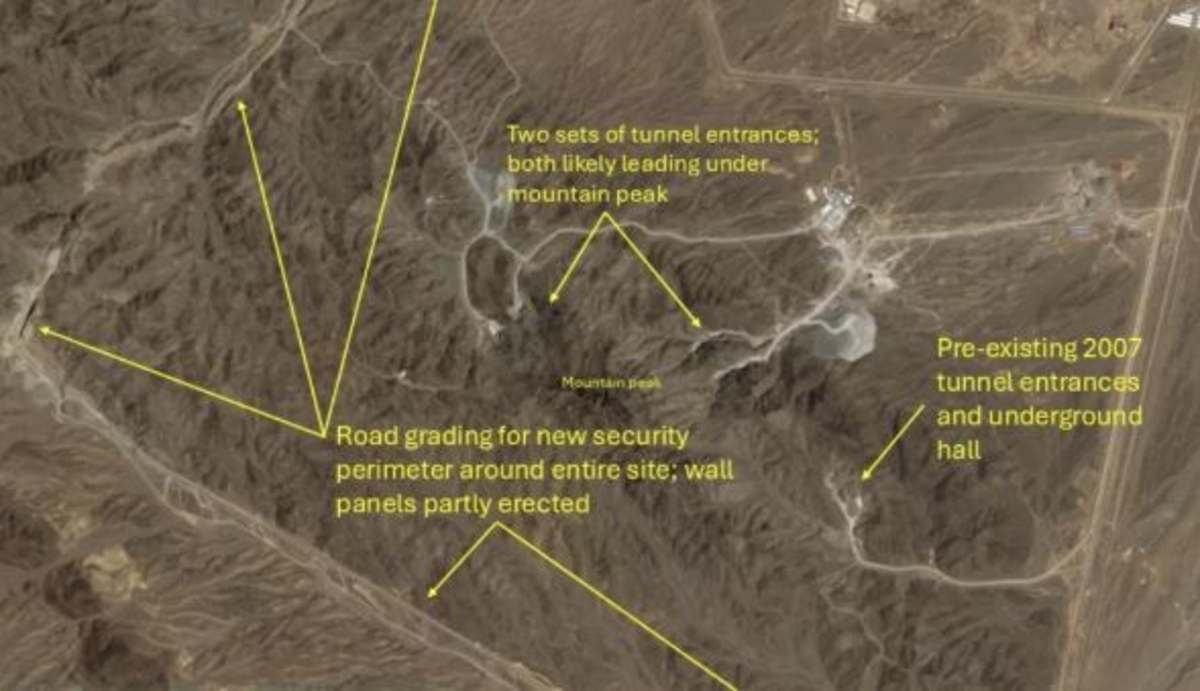
Crocker cautioned that such a response would trigger a massive US military reaction. Still, he noted that airstrikes alone are unlikely to completely dismantle Iran’s nuclear program since "They have the knowledge, and neither Israel nor the US can kill all the nuclear scientists."
He concluded by emphasizing that ending Iran’s nuclear ambitions would require a verifiable agreement to abandon enrichment entirely. " Perhaps the US force would persuade Iran to agree to such restrictions. If not, it will broaden the conflict and deepen Iranian determination to acquire nuclear weapons, whatever the cost."
2. Dennis Ross
Dennis Ross, ambassador and former US Special Envoy to the Middle East, emphasized that what truly matters is the objective behind any military action and how it is communicated to the public.
He illustrated, “Let’s say Trump announces that to ensure that Iran will not have a nuclear weapon option, we have decided to bomb Fordo. This is an enrichment site built into a mountain. It requires a mountain buster, not a bunker buster.”
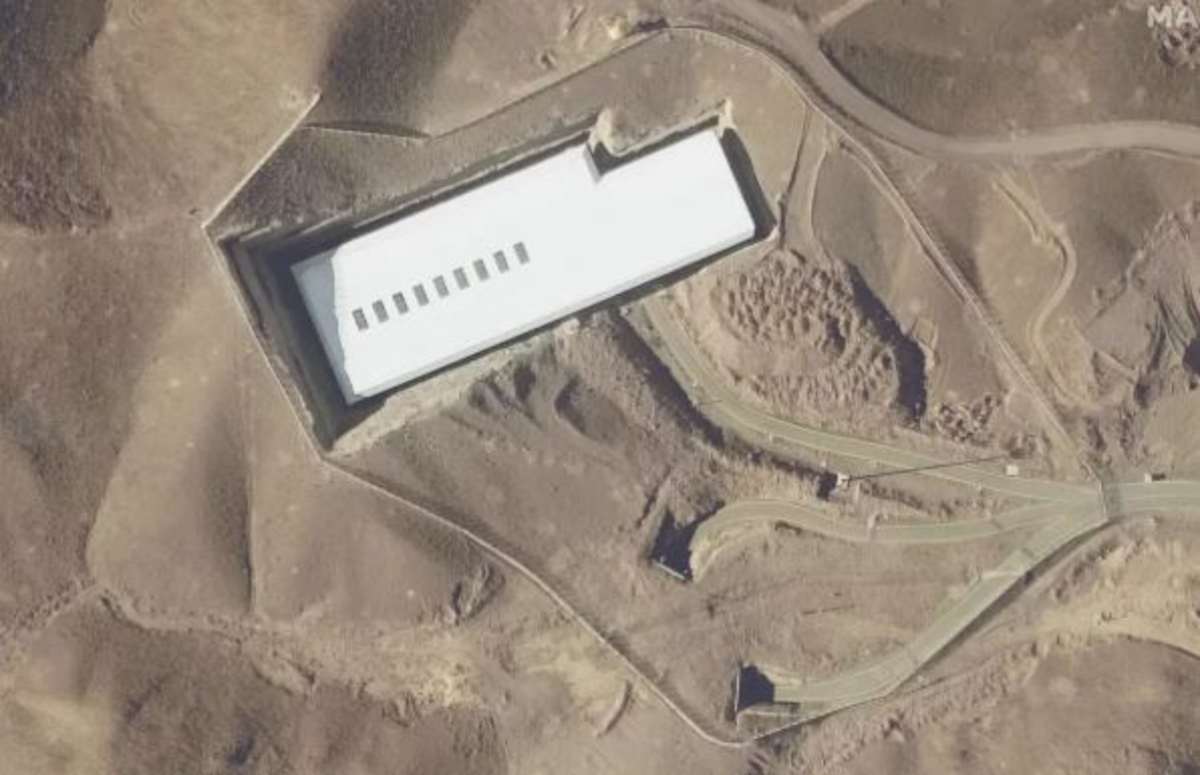
Ross explained that since Israel lacks both the massive ordinance penetrator bomb and the aircraft capable of carrying it, only the US can effectively destroy Fordo from the air. “Iran retaining the Fordo enrichment site would be retaining an important element of its nuclear infrastructure that surely preserves its option of going for the bomb,” he warned.
Ross added that if the president states the strike targets only Iran’s threshold nuclear capabilities and no other sites, the conflict might remain limited. But if the US broadens its bombing campaign, perhaps with regime change as a goal, Iran’s leaders could feel cornered and opt to retaliate fiercely.
He predicted, “Under these circumstances, I could see the Iranians going after the oil facilities of our friends in the region and, perhaps, blockading the Straits of Hormuz — dramatically driving up the price of oil, something the Trump administration does not want.”
He also noted that Iran might target soft American interests abroad. He concluded, “Khamenei’s instinct now is not to act this way because it could trigger a war with the US, and he has traditionally seen that as threatening the regime’s survival. But if Trump is thinking about wider and more extensive attacks against Iran, he and those around him will need to think of the options the Iranians have to create pain for us and position our forces to anticipate and counter these contingencies.”
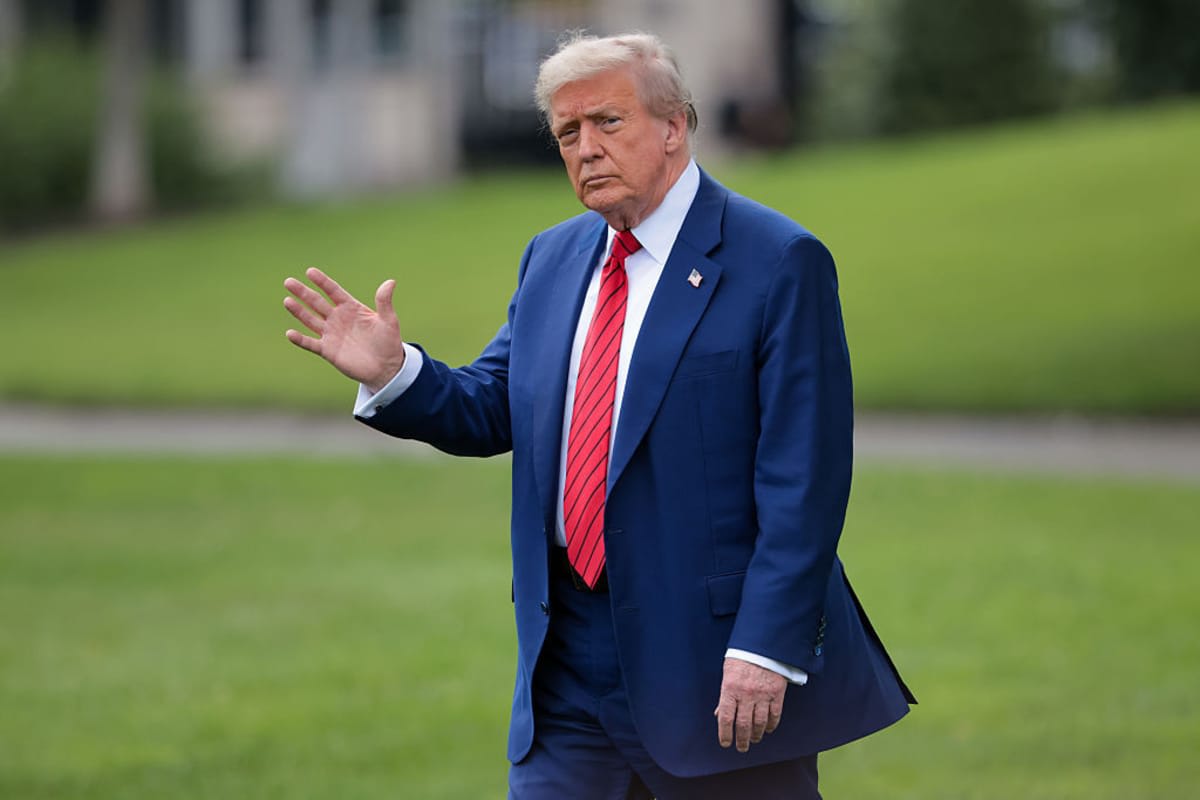
3. Ian Bremmer
Ian Bremmer, president and founder of the Eurasia Group, underscored a sobering truth about conflict: wars are much easier to start than to end.
“So far, the Iranian leadership has displayed significant restraint,” he observed. “They’ve focused only on hitting back against Israel (which they’re not very capable of doing) and not taking any steps to disrupt tanker traffic in the Straits of Hormuz, attack energy infrastructure in the Gulf, or launch strikes against US military targets in the region.”
View this post on Instagram
Bremmer then posed a critical question. "Might that change if the Americans get directly involved in the war? If it’s just destruction on Fordo, I’d suspect not. After all, the US and Israel still have the ability to launch decapitation strikes against Iran and would be holding that in reserve. But that implies the Iranian leadership remains coordinated and isn’t acting out of desperation.”
He raised several hypothetical scenarios worth considering. “What if rogue military actors inside a badly hit Iranian military leadership decided to take matters into their own hands? That could easily lead to escalation. Or if the supreme leader felt that his control over the military was itself starting to slip? Or even if Israel proves unsatisfied that they’re done after Fordo and wants to start attacking the leadership themselves?" he asked.
Bremmer closed with a cautionary reminder. “It’s much easier to start wars than to end them," he added.
4. Ray Takeyh
Ray Takeyh, a senior fellow at the Council on Foreign Relations, began by highlighting the limitations of Israel's military capabilities in targeting Iran’s nuclear infrastructure, particularly the fortified Fordo enrichment plant.
“Only the United States, with its advanced aircraft and specialized munitions, can destroy this site,” he explained.
Takeyh emphasized that US involvement is crucial and noted that the challenge for Trump lies in balancing his reluctance to be pulled into another prolonged Middle Eastern war with his objective of neutralizing Iran’s nuclear threat.
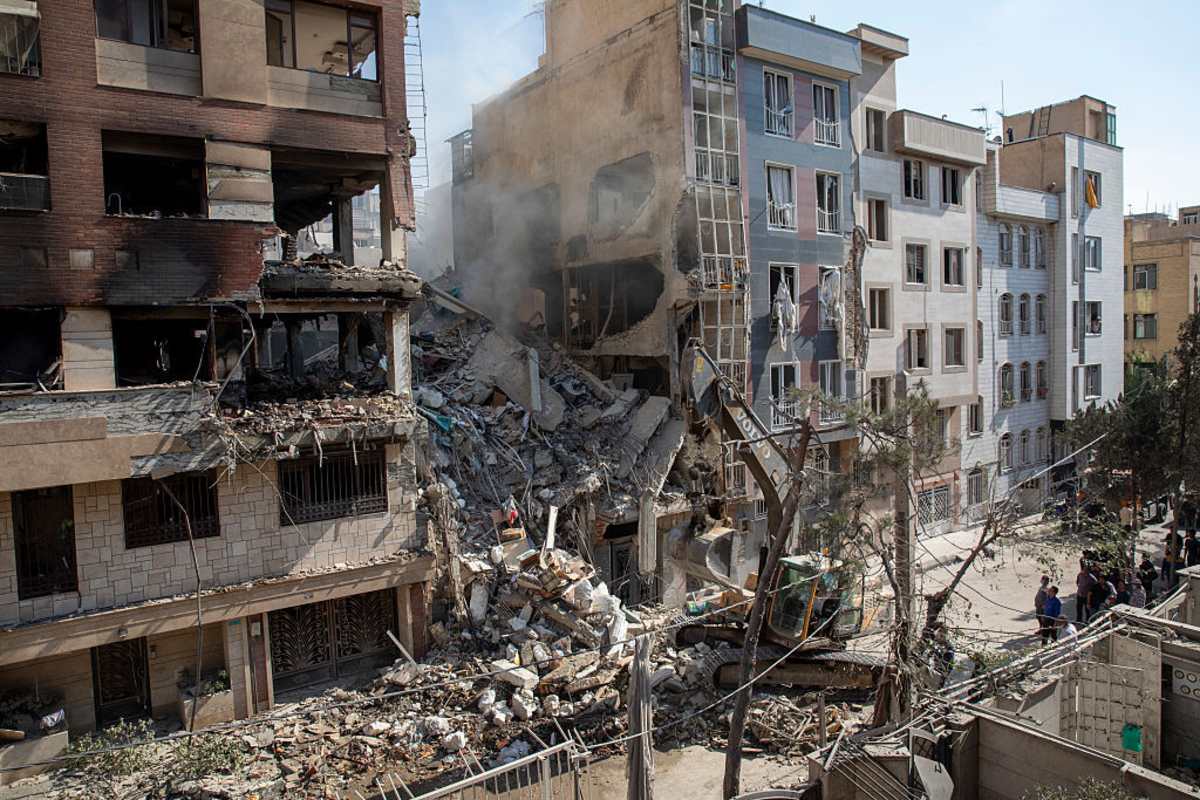
He quipped, "His choice is likely to define the trajectory of US-Iran relations for some time to come.”
He issued a stark warning: “Any move against American forces or ships will likely trigger a devastating retaliation at a time when Iran can ill afford to expand the zone of conflict.”
Takeyh further cautioned, "American embassies, tourists and military bases could be targeted by Iran’s clients while Tehran claims ignorance. Any president witnessing such loss of life will be compelled to respond or face the political consequences of inaction. This could begin a cycle of strikes and counter-strikes.”
He concluded with a clear-eyed reminder. “The important point for the Trump administration to recognize is that bombing Fordo will not be the final salvo in this conflict. All this is not to suggest that it should not attack, but that it should do so with eyes wide open.”
5. Robert A Pape
Robert A Pape, a professor of political science at the University of Chicago, shared his expectations regarding a potential US strike on Iran. He anticipated, "I expect the nuclear processing facility at Fordo to be hit immediately, not just on day one but during the first hour of US strikes. Natanz likely will be attacked at the same time. This is the most critical target. Without pounding these nuclear facilities hard, there’s little point to any US air attack.”
Pape warned that the scope of the attack could go well beyond just nuclear sites. “We should also not be surprised by 'surprise.' The most likely event is that a much wider set of targets will be struck than the set narrowly associated with Iran’s nuclear program," he said.

“The US knows that Iran could well respond promptly against US military bases, which are only tens of minutes away from any missiles launched. To limit these and other military responses, there are major incentives to attack all leadership, all communication links across the country (even those used by civilians) and Iran’s missiles and military bases — all in one fell swoop.”
He also pointed to the possibility of unconventional tactics, saying, “Another surprise could be the attempted use of commandos at Fordo and Natanz, both for post-attack reconnaissance and possible placement of munitions to seal entrances to underground shafts. This would be a high-risk mission, but so too is the entire endeavor.”
6. Robin Wright
Foreign affairs analyst Robin Wright emphasized that there is no military solution to the ongoing conflict between Israel and Iran.
She stated, “Whether or not the US engages militarily, Washington is the only party capable of brokering a deal that defuses a conflict between Israel and Iran, two countries that have conducted a shadow war for decades, now playing out in stunning missile barrages. So the US is now a player, whether militarily or diplomatically.”

Wright highlighted a troubling uncertainty: “Neither the US nor Israel has specifically detailed what their longer-term intentions are on Iran — what the end game is after the shooting stops.”
She recalled Trump’s calls for “unconditional surrender,” questioning what that truly means: “Does that mean a total surrender of a nuclear program and ballistic missiles too? Or is Trump talking about some form of political surrender? On the day he launched airstrikes on Iran, Prime Minister Benjamin Netanyahu made an appeal to the Iranian public.”
Wright explained, “Netanyahu said Israel had cleared the path for Iranians to rise up against theocratic rule in Tehran. “Regime change” was implicit. The two men have reportedly discussed whether to kill Khamenei, who has been in power since 1989. Trump said he was opposed — for now — even though he noted Wednesday afternoon that theocracy could indeed fall as a result of the current war.”
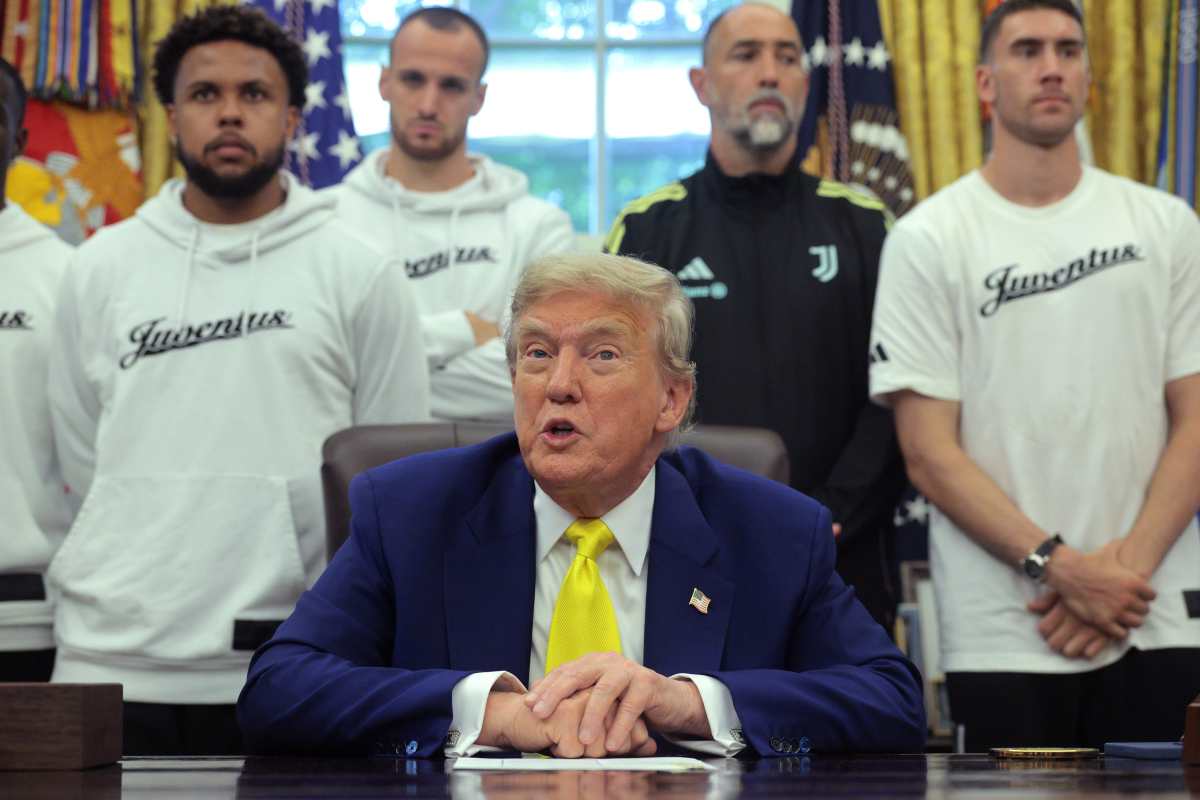
She concluded, “Iran will come out significantly weaker from this war, no doubt. But it is more than twice the size of Texas — in contrast to Gaza, which is the size of greater Philadelphia. Israel is still at war there after 20 months of warfare. Iran is also twice the size of Afghanistan, where the US fought its longest war."
"And it is three times the size of Iraq, where the US fought an eight-year war which, as an unintended consequence, spawned ISIS, an extremist movement that forced the US to reengage in Iraq.”
7. Jonathan Panikoff
Jonathan Panikoff, director of the Atlantic Council’s Scowcroft Middle East Security Initiative, explained that the scale of Iran’s response would largely depend on the scope of US targets.
He noted, "A confined target set, such as Fordo and remaining nuclear program infrastructure, might elicit from Iran a narrow target set in response. The potential for such a reaction could be increased if Trump links the US strike to Israel agreeing to end the war, upon a US assessment that Iran’s nuclear and ballistic missile capabilities have been sufficiently mitigated."

Panikoff pointed to past events as a reference, saying, “There is some imperfect precedent for a narrow Iranian response."
He continued, "Trump is certain to be considering his January 2020 decision to kill then-Quds Force commander, Qasem Soleimani. The traditional thinking at the time was that if Soleimani were assassinated, it would spark a broader war. It didn’t. Iran retaliated five days later, and although US service members were unfortunately injured, there were no deaths, and tensions then dissipated.”
He added, “Today, Iran’s ability to retaliate is further constrained. Its most lethal weapons inventories are depleted; its most prominent regional proxy, Hezbollah, is diminished; and those proxies still standing, including Iraqi Shia militants and the Houthis, have been restrained in their reactions to the war — and the US is a more challenging opponent than Israel.”
“Moreover, while the supreme leader has a variety of factions to balance, Iranian leaders have a unified overarching priority: regime survival.”
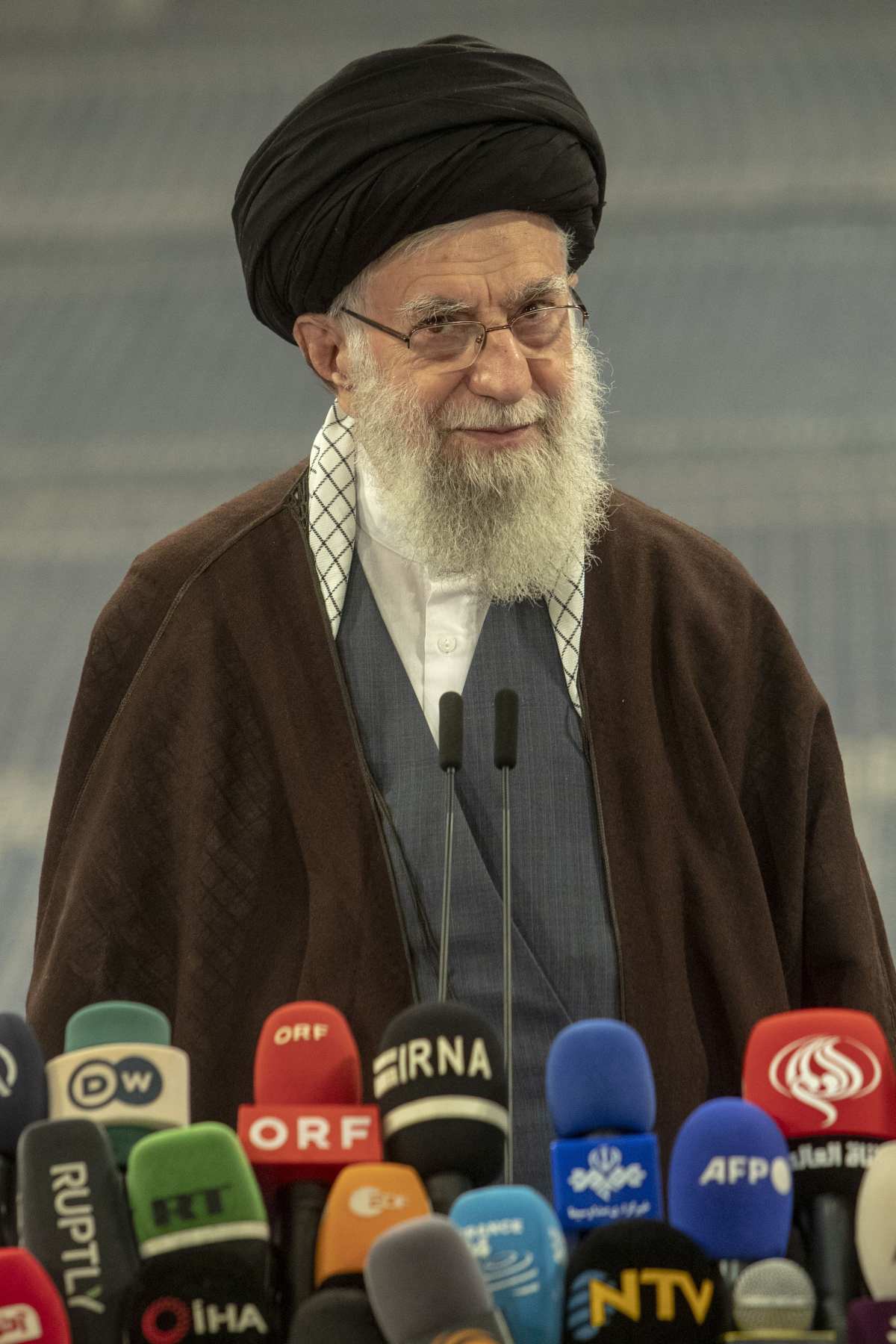
Panikoff concluded, “Striking Iran’s nuclear sites may not permanently end its nuclear ambitions. But a strike can set the program back by such a significant amount of time that it’s no longer an existential threat to Israel or the region. At that point, Iran will have to decide whether to spend billions of dollars trying to rebuild something it would almost certainly lose again."
8. Arash Azizi
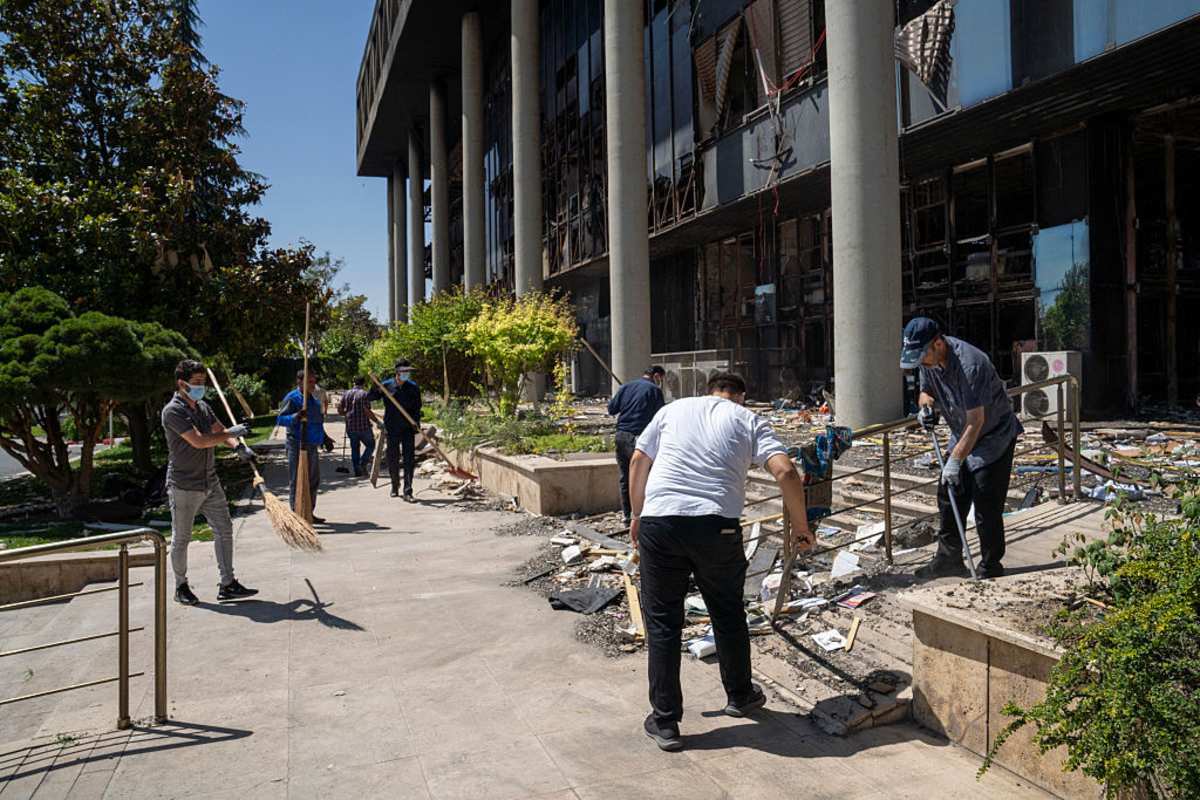
Arash Azizi, contributing writer at 'The Atlantic' and author of 'What Iranians Want: Women, Life, Freedom', shared his perspective on Iran’s possible responses.
He said, "Iran will be faced with the choice of either attempting to expand the conflict by hitting at US targets in the region decisively or accepting a deal via negotiations, effectively a form of ‘surrender’ as Trump understands it.”
Azizi acknowledged the difficulty in forecasting the outcome but suggested that, “It is hard to predict, but whether the US does or doesn’t bomb Iran, I think Tehran will ultimately pick the path of diplomacy and a deal. This will fit both with the regime’s rationale of wanting to preserve itself and the overwhelming sentiments on the Iranian street.”
However, he also warned, “But it is also possible that Iran might hold out longer, hoping that it could exhaust Trump and Israel. It could leave the NPT and go toward testing a nuclear device. This will be a dangerous path, especially if it ends up goading Trump to enter the Middle East more decisively."

